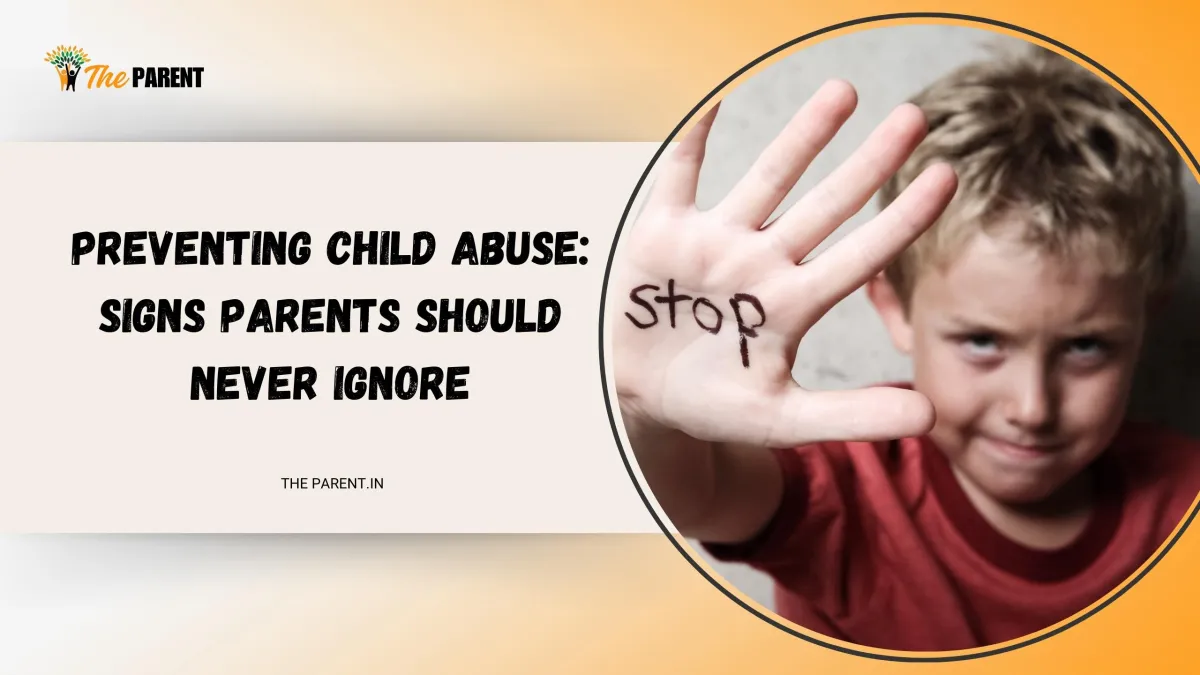
Preventing Child Abuse: Signs Parents Should Never Ignore
As parents, nothing matters more than the safety and happiness of our children. While we want to believe the world is a safe place, the reality is that child abuse can happen anywhere — even in environments we trust. Recognizing early warning signs can make all the difference between ongoing harm and timely intervention.
Also Read Lunchbox Lessons: Teaching Kids to Pack a Balanced Meal on Their Own
we will explore how to spot the signs of abuse, offer real-world examples, and empower you with steps to protect your child. Because when it comes to preventing child abuse, awareness is the first and most crucial step.
Why Recognizing Early Signs Matters
Many cases of child abuse go unreported because the signs are subtle or misunderstood. Children often feel scared, confused, or guilty, which makes it harder for them to speak out. As a parent or caregiver, your attentiveness can be the shield your child desperately needs.
Early recognition leads to:
Faster intervention and protection
Less emotional and physical damage
Stronger trust between parent and child
Your instincts and awareness truly have the power to change lives.
Common Signs of Child Abuse Parents Must Watch For

While every child reacts differently, certain behaviors and physical indicators should never be ignored. Here are key warning signs divided by type of abuse.
1. Physical Abuse
Unexplained bruises, burns, or cuts
Injuries in shapes like handprints or belt marks
Flinching at sudden movements
Wearing long sleeves or pants in hot weather to cover injuries
Example:
If your child has frequent bruises in unusual places like the back or thighs and hesitates when you ask about them, it deserves immediate attention.
2. Emotional Abuse
Excessive withdrawal, fear, or anxiety
Low self-esteem or constantly apologizing
Sudden decline in academic performance
Extreme behaviors like aggression or passivity
Example:
A once-confident child who suddenly becomes unusually shy and fears disappointing adults might be suffering emotional harm.
3. Sexual Abuse
Difficulty walking or sitting
Knowledge of sexual topics beyond their age
Sudden bedwetting or nightmares
Avoiding specific individuals or places
Example:
If a young child starts using sexually explicit language that they should not know, it signals an urgent need for careful conversation and professional help.
4. Disrespect
Constant hunger or stealing food
Poor hygiene, dirty clothes, or untreated illnesses
Frequent absences from school
Lack of supervision for extended periods
Example:
A neighbor’s child always appearing unsupervised and poorly clothed in cold weather might be facing disrespect at home.
How Parents Can Protect Their Children

Recognizing signs is the first step. Taking action comes next. Here’s how you can create a safer environment for your child.
Keep Open Communication
Create a home where your child feels safe sharing anything — big or small. Avoid judgment or anger when they talk about difficult topics.
Teach Boundaries Early
Teach your children about personal space, safe touch, and the importance of saying "no" if something feels wrong.
Stay Involved
Know your child’s friends, teachers, and activities. Visit new environments they spend time in and meet the adults in charge.
Trust Your Gut
If something feels off, do not second-guess yourself. Investigate further and take action if necessary.
Seek Professional Help
If you suspect abuse, contact a trusted pediatrician, school counselor, or child protective services. Early intervention saves lives.
What to Do If You Suspect Abuse
If you notice signs and feel concerned:
Document what you see or hear
Speak calmly to your child without pressing for details
Reassure them that they are not in trouble
Contact professional services or law enforcement if needed
Always prioritize the child’s emotional and physical safety above all else.
Real-World Story: A Mother’s Instinct Saved Her Son
Maria noticed her 7-year-old son, Ethan, becoming unusually fearful around his soccer coach. Despite no visible injuries, his sudden silence after practices raised alarms. Trusting her instincts, Maria gently asked open-ended questions and learned the coach had been emotionally abusive. Her quick action prevented further harm and gave Ethan the support he needed to heal.
Stories like Maria’s show that a parent’s vigilance can make a life-saving difference.
Preventing child abuse starts with informed and attentive parenting. By learning the warning signs and responding without hesitation, you can protect your child’s innocence and emotional well-being.
Children need advocates who listen, believe, and act. Let that advocate be you.


